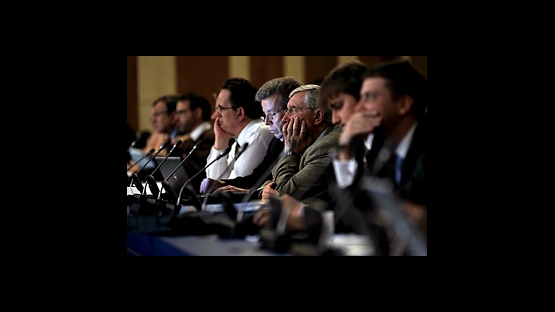This week 230 experts from over 30 countries gather in Vienna, Austria to discuss the most critical issues facing research reactor fuel management.
Operators of the world´s 250 working research reactors are discussing the use of highly enriched uranium (HEU) as well as conversion of research reactors to use different fuel. The use of HEU poses a global nuclear proliferation and security risk because it can be used to make nuclear explosives.
According to Pablo Adelfang, Head of the IAEA´s Research Reactor Group, "The main issue during this conference is the development of very high density low-enriched uranium (LEU) fuel, as well as the conversion of the most demanding high-flux research reactors to use LEU instead of HEU."
The 13th International Topical Meeting on Research Reactor Fuel Management, being held from 22 - 25 March 2009, will serve as an international forum for researchers, operators and decision-makers to discuss research reactor use, and help improve operational efficiency and fuel safety. Participants will also contribute to the search for back-end solutions for spent fuel, that is, transportation, final disposal and reprocessing.
"More research is still needed to create and test the fuel required to convert some very high-end reactors - like high-flux research reactors. This is under development and is drawing keen interest," says Mr. Adelfang.
Another critical issue is the shortage of the medical isotope technetium-99m (Tc-99m), which is used for health care and treatment. The international community has become increasingly concerned about shortages of the isotope, which is produced by some of the world´s oldest research reactors.
"Ninety-five percent of the world´s needs are supplied by only five reactors, all of them over 40 years old," said Nuclear Energy Agency Director General Luis Echávarri, "Outages of these reactors and of the downstream processing facilities have recently resulted in significant shortages of Tc-99m."
The conference is organised by the European Nuclear Society in cooperation with the IAEA. In its supporting role, the IAEA is funding participation of some experts from developing countries.


